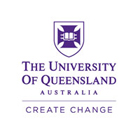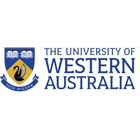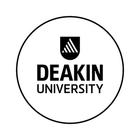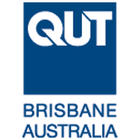- News and articles
- Events
- Find usIDP AustraliaIDP BahrainIDP BangladeshIDP CambodiaIDP CanadaIDP ChinaIDP EgyptIDP GhanaIDP Hong KongIDP IndiaIDP IndonesiaIDP IranIDP JordanIDP KenyaIDP KoreaIDP KuwaitIDP LebanonIDP MalaysiaIDP MauritiusIDP Middle EastIDP NepalIDP New ZealandIDP NigeriaIDP OmanIDP PakistanIDP PhilippinesIDP Saudi ArabiaIDP SingaporeIDP Sri LankaIDP Taiwan, ChinaIDP ThailandIDP TurkeyIDP UAEIDP Corporate
- Social
- English
Studying in Australia is always the first choice for those who want to pursue a high-quality education, a safe living environment and open job opportunities. This destination is also likened to a "promised land" for those who aspire to explore the world, experience diverse cultures and assert themselves in the international market.
In this article, IDP will help you get an overview of studying in Australia, including the eligibility to study in Australia, the cost of studying and living in Australia, and how to apply for a scholarship to study in Australia to help you save money on your upcoming journey.
1. Overview of studying in Australia
Australia has long become a dream study abroad destination for millions of young people around the world, including Vietnamese students. Australia's education system is highly regarded globally, with 7 of the world's top 100 universities (QS World University Rankings 2025). Besides, Australia is also ranked as one of the safest countries, with a low crime rate and a tight social security system.
Reasons to study in Australia
Let's discover the reasons why studying in Australia is a wise choice for your journey to conquer knowledge and expand your future:
World-class education quality
Diverse academic programs and fields of study
Widely recognized qualifications
Safe and friendly living environment
Lots of opportunities to make friends, and experience diverse cultures
Policies to support finding part-time jobs during the study process
Attractive internship and work opportunities after graduation
Reasonable cost of study and living
2. Australian Education System
The difference between the Australian education system and other countries lies in the Australian National Qualifications Framework (AQF). The Australian Qualifications Framework (AQF) was first introduced in 1995 to support the national qualifications system in Australia, including higher education, vocational education and training (VET), and schools. AQF is a policy agreed upon by the ministers of the Commonwealth, states, and territories and administered by the Ministry of Education.
2.1. School system (Primary and Secondary)
The primary school program in Australia teaches students from the age of five and above. Schools in Australia are among the best in the world, including both public and private schools. Tuition fees and admission requirements will vary across Australian schools, states, and territories.
The high school system in Australia always has similarities with the curriculum in Vietnam to help international students easily switch subjects. During study, students will be taught elective subjects, and prerequisite courses and also learn English to get acquainted with the environment before entering the main course.
2.2. Pre-University and College Programs
If you do not meet the entry requirements for direct admission to an Australian university, the Foundation Studies program can provide you with the skills you need before entering university. You will be equipped with skills such as teamwork, presentations, reading skills, and in-depth research.
You can also choose to transfer through an associate degree program (equivalent to 1 year of bachelor's degree).
2.3. Undergraduate Programs
Most undergraduate programs in Australia usually last 3 years for a bachelor's degree and 4 years for an honours bachelor's degree. Some special disciplines may require a longer duration of study. The undergraduate program is divided into fairly different semesters, each of which usually lasts 12 weeks. Throughout the study period, you will be able to study specialized subjects and supplementary subjects as required by the program.
2.4. Graduate Programs
Postgraduate programs in Australia help international students hone their professional knowledge and research skills to meet the increasing demands of the labor market. Common Types of Postgraduate Programs in Australia
Graduate Certificate: A short-term program that usually lasts for 1 semester
Graduate Diploma: A program that is more intensive than a graduate certificate (usually 1-2 years)
Master's Degree: A training program that improves professional knowledge and skills in a specific field, usually lasting 1-2 years.
Doctor of Philosophy Degree: The highest degree of training, for students who wish to pursue research in their field (usually 3-4 years).
See also: Australian Education System: 6 Things to Know
For details of the requirements of each level of study, you can contact IDP for direct advice!
3. What are the requirements to study in Australia?
3.1. Age conditions
Basically, there is no general age rule to study in Australia. However, depending on each level of study and specific cases, there will be separate regulations on the appropriate age for admission. The minimum age to get a student visa is 6 years old.
For international students under 18 years old, you can ensure the following conditions:
Have a legal guardian in Australia (parents, biological relatives, reputable educational institutions)
Comply with regulations on travel, living, and studying hours throughout the study abroad process
When you choose to study Undergraduate and Graduate programs, you can be granted a visa at any age. However, you will have to meet the requirements of academic GPA, foreign language ability, or work experience. People over the age of 35 will not be able to apply for a visa to stay in Australia after completing their studies. According to the new Australian government regulations, the maximum age required for the 485 Post-HigherEducation Work Stream Visa is 35 years old.
3.2. Educational conditions
Similar to other countries, the conditions for studying in Australia will be assessed based on the grades of the last 2-3 years of study. GPA requirements will vary depending on the school and level of study you want to pursue.
Level of study | Condition |
Secondary School | The last 2 years of study Minimum GPA of 6.5 or higher A foreign language certificate may be required on a case-by-case basis. Or participate in an interview, or write an essay in English |
Vocational Programme (VET) | Completed grades 11 and 12 with average or good academic performance IELTS average of 5.0 or higher |
Pre-University Programs | Complete the Grade 11 program in Vietnam Minimum GPA of 6.0 or higher IELTS average of 5.0 - 5.5 or completion of a magnetic test |
Undergraduate | Complete Grade 12 Minimum GPA of 6.5 or higher Minimum IELTS 6.0 or higher |
Postgraduate | Students who have graduated from the University A passing GPA or a minimum requirement of 6.5 or higher IELTS needs to be 6.0 - 6.5 depending on the program |
In addition to the condition of GPA, "How much IELTS do you need to study in Australia?" is also a concern of many parents and students. In fact, for those who choose to study in Australia from high school, most high school programs are not required to always submit IELTS. At higher levels, IELTS scores will be determined depending on each level of study and discipline.
If you want to know the details of the IELTS score requirements of the school you plan to apply for, please contact IDP for a free consultation!
See more:
4. How much does it cost to study in Australia
Tuition fees to study in Australia are an important expense that should be carefully considered when you plan to study abroad. This cost will vary depending on your level of study, program, university and region you choose to live in.
Level of study | Duration of study | Estimated cost per year |
English Courses | Depending on the length of the course and the scholarship of the school | $350 AUD/week or more |
High School | Up to 5 years | $13,900 - $43,000 AUD/year |
University Preparation | 1 year | $21,322 - $56,590 AUD/year |
Bachelor | 3-5 years | $22,650 - $56,000 AUD/year |
Postgraduate | 1 year | $20,000 - $53,000 AUD/year |
Cost of living | $29,710 AUD/year |
In addition to tuition fees, you will have to prepare fees such as:
Visa fee: $1,600 AUD
The health check-up fee will range from 2,300,000 VND - 2,600,000 VND.
On average, Australian student health insurance costs about AU$600 per year.
The cost of living in Australia will fluctuate depending on where you live, your lifestyle and your personal needs. In addition, you can also consider studying abroad in regional cities such as Adelaide, the Gold Coast, Canberra, Newcastle, Wollongong, Illawarra, Geelong, and Hobart Perth with the cost of living up to 20% cheaper than big cities, but still ensuring the opportunity to study at top universities in Australia.
See more:
5. Which city should I choose to study in Australia?
When deciding to study abroad in Australia, choosing a university and a city to live in are two important factors that cannot be ignored. Australia is a vast country with sprawling cities, each offering different learning experiences and opportunities. Here are some of the top cities that international students can choose to study abroad:
City of Melbourne, Victoria
Melbourne has been named the best city to study abroad in Australia and ranked third in the world according to the QS 2025 rankings. The city is known as the cultural capital of Australia, with a variety of entertainment activities such as live music, comedy, and sports, providing exciting experiences. Melbourne has 8 major universities and about 270,000 students. The University of Melbourne and Monash University are two of the top institutions here.
Thành phố Sydney, bang New South Wales
Sydney is a major city, business and financial hub of Australia. The city attracts a large number of international students because of its high quality of life and beautiful natural landscapes. Sydney has 5 universities and about 230,000 students, including 50,000 international students. The University of Sydney and the University of New South Wales are two of the top educational institutions in the city. The University of Sydney is currently ranked 18th on the QS 2025 rankings.
Canberra City, New South Wales
Canberra is the capital of Australia and the seat of Parliament. Although not as famous as Melbourne or Sydney, Canberra was chosen as the capital to create a balance between these two major cities. The Australian National University is located in Canberra as one of Australia's top universities.
Thành phố Brisbane, bang Queensland
Brisbane is located in the east of Australia, close to the famous tourist destination of the Gold Coast. Bisbane is the third-largest city in Australia, which has grown tremendously in recent years. If you love nature, this city will not disappoint you with its beautiful beaches and great walking trails. While in Bishane, you will be able to admire the clear blue beaches and beautiful walking trails. Brisbane has 3 main universities, of which the University of Queensland is the most highly rated.
6. Top Universities in Australia
Australia is well-known for its many top-notch educational institutions, offering quality academic programs and diverse learning environments. Here are the top universities that international students should not miss when choosing to study in Australia in the top QS World University Rankings 2025:
The University of Melbourne
The University of New South Wales (UNSW)
The University of Sydney
The Australian National University (ANU)
Monash University
The University of Queensland (UQ)
The University of Western Australia (UWA)
The University of Adelaide
University of Technology Sydney (UTS)
Macquarie University (Sydney, Australia)
7. What majors should I study in Australia?
Choosing the right major to study in Australia is an important decision, affecting your future career and life. Here are some of the highly regarded and promising majors in Australia:
Health - Healthcare
Engineering
Education
Computer Science - Information Technology (IT)
Law
Finance - Accounting
8. Summary of scholarships to study in Australia with attractive value in 2025
Australia is a generous country in terms of the number of scholarships available to international students. Each year, the Australian government supports many scholarships for international students at all levels of study, including secondary, college, undergraduate, and postgraduate. Scholarships from Australian schools are also very abundant and the value is quite attractive from 30%-100%.
You can refer to the list of Scholarships to study in Australia from 30-100% for all levels of study, with the 5 universities with the highest scholarship value:
University | Scholarship | Value |
University of Technology Sydney (UTS) | UTS Vice-Chancellor's International Postgraduate Coursework Scholarship Value | 100% Annual Tuition Fee |
Monash University | Monash International Leadership Scholarship | 100% |
ICMS | ICMS Alumni Bursary | 50% of annual tuition fees |
Macquarie University | Women in Management and Finance Scholarship | $15,000 Annual Tuition |
The University of Melbourne (UniMelb) | Faculty Scholarships - Science Graduate Scholarship (International) | Up to $10,000 one-time |
9. Regulations on part-time study abroad in Australia
In terms of job opportunities, from July 1, 2023, Australian international students are allowed to work 48 hours / 2 weeks of overtime during the semester and unlimited vacations. Along with that, there is a policy of staying and working (Post-Study Work Visa) for 2-5 years after graduation, as a premise for career development and settling in Australia later.
Contact IDP for free study-abroad advice in Australia!
Studying in Australia is a challenging but also extremely rewarding journey. This is an opportunity for you to explore a new culture, broaden your horizons, and hone your knowledge and skills. Moreover, studying in Australia is also a door to a bright future with many attractive career opportunities. With a prestigious university degree from Australia, you will confidently enter the international labor market and achieve many successes.
To have a smooth and successful journey to study in Australia, the experts at IDP are always ready to give you thorough advice, from choosing a major, searching for scholarships to study in Australia, interviewing for Australian student visas, to adapting to a new living environment.
In addition, you can participate in study abroad exhibitions organized by IDP to meet and answer questions directly from university representatives and discover all information about schools and majors that attract human resources and bring high demand for immigration as well as job opportunities after graduation. IDP also provides essential support services for international students through finding accommodation, booking air tickets at preferential rates, free phone sims, and equipping skills before departure (Pre-departure session).
Apply for Australia Study Abroad Counselling with IDP
Free study abroad consultation hotline: 19006955
See more:
5 Latest Updated Conditions to Study in Australia
What major should I study in Australia?
Explore in Australia
Hover over the city cards to discover more!

Explore health cover options
IDP has partnered with leading health insurance providers to give you the best options for your peace of mind abroad.

Send funds securely with money transfer
Explore safe, convenient and fast payment solutions with our market leading partners.

Find your home away from home
We’ll help you discover student accommodation that makes you feel comfortable and at home, no matter where you are.
Cost of living calculator
Estimate how much you will need to cover your expenses including cost of living comparison for various country and accommodation options.
Can’t decide where to study?
Answer 5 quick questions to get personalised content and course recommendations






















